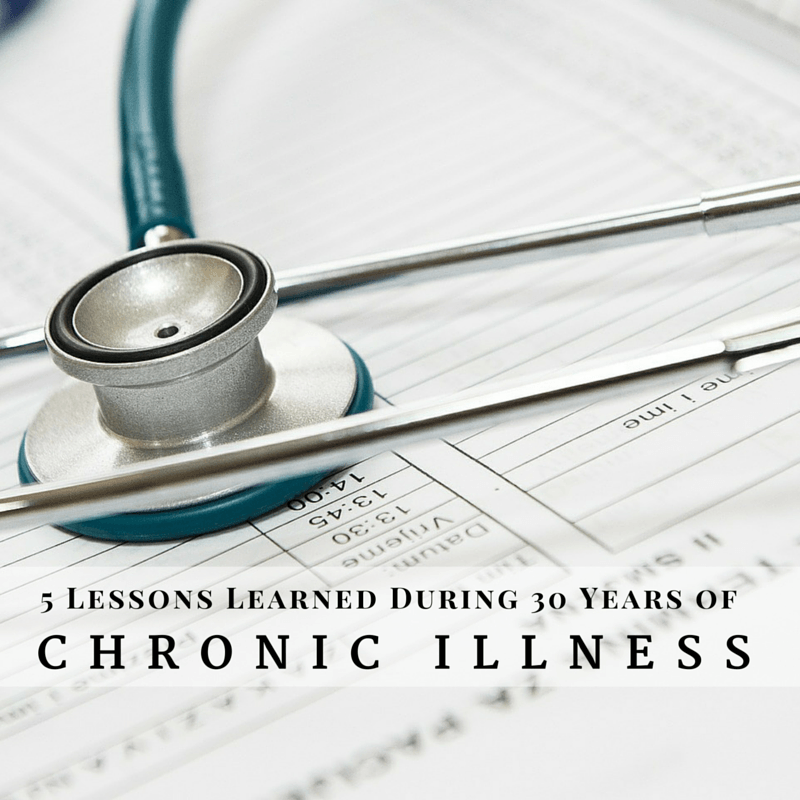
I have two chronic conditions that I have been living with for thirty years.
During this time, I’ve experienced pain, surgeries, lost time at work, and missed events with family and friends.
Neither of my conditions is fatal, but between the two of them, I have spent way too much time getting poked and prodded. Too much time debating with doctors about which one of the two was causing certain symptoms or what treatment could make me better.
Nine years ago, I went through four surgeries and a mix of medications to get me to a relatively normal existence. Lost time and pain was reduced until the last year.
For months, I lived with debilitating migraines. I was relatively functional, but time away from work and family, and endless tests and doctor’s appointments were back in my life.
In April, when I was told one of my medications was causing the headaches and needed to be stopped, I told my primary care that a major surgery was in my future.
Her first reaction was “WHOA…we have less invasive solutions we can attempt before we get to that point.”
She sent me to a specialist, who had the same reaction. Per the norm, medication was prescribed and quickly failed. My symptoms from nine years ago returned, the very thing I was trying to prevent. And the debate about which condition was causing what symptoms resurfaced.
So I explained. I pushed. I fought.
My new specialist is wonderful – much more open and responsive than the doctors I left in frustration nine years ago. She listens, but ultimately she’s a doctor. She knows more than I do about my conditions.
She does not know more than me about my body.
At her direction, we attempted a less invasive surgery to halt the worst of my symptoms. Two procedures would be done. I had been on bed rest for two weeks and one surgery was necessary to get me functional again. She thought the other would “cure” me so the symptoms did not return.
Before the surgery, she visited my bedside. I was clear on my needs. Get the priority procedure done. The other one was a stopgap to get me to the invasive procedure I knew was a given. I considered it optional.
She said she wasn’t convinced. In her mind, the optional procedure could solve my problems. My husband even teased me, calling me “Dr Woodman.” I was adamant – the second procedure was optional, so if it didn’t work, don’t press forward.
During the surgery, she attempted three different techniques for that second procedure and none of them worked. I was under for an extra 90 minutes while she tried to do what she thought was right. My body wasn’t interested.
Afterwards, she told my husband “I had a doctor God complex. I thought because I’ve treated so many women, I knew what was right for your wife. She knows what she needs and I need to listen to her.” Dr Woodman, indeed.
Later that night, as I was at home recovering, she called me. We agreed that I would go in for major surgery as soon as possible. The risks to my health are too great to wait and she wants to do her part to get my life back.
The best part of the conversation was when she said “I keep coming up with ideas to make this easier for you. To do things that are less invasive. Every time, you turn out to be right. I may know medicine, but you know your body. I’m going to get you healthy your way.”
I’m not asking for anything that is medically unsound. What I’m doing is not right for everyone. However, having lived with these conditions and issues for 30 years, I’m all done.
Doctors are conservative by nature. They will attempt medication first. Then procedures that are less invasive. Major surgery is the last option.
Yet, for me, I’ve known major surgery was inevitable for nine years. I thought I’d have more time. I thought the work we had done back then would last for a bit longer.
My body had other ideas.
I’d rather know what I’m dealing with, understand the options, and get to permanent remediation as quickly as possible. If conservative treatments are going to prolong the inevitable, I’m not interested. The shortest path to getting my life back is my only goal.
I can’t tell you how many doctors have not listened to me in the last thirty years. How many needless scares, procedures, and surgeries I’ve had. One came close to killing me out of her conviction that she knew best.
After that, I became very selective in my doctors (who wouldn’t?). I don’t consider any of them the ultimate expert. They have medical expertise, sure. But there’s only one expert who’s opinion I’m interested in.
MINE
Now I find doctors that will discuss options with me openly. Who will listen to my needs, and equally consider conservative and definitive treatments to address them. Absolutely no pandering allowed.
I think all doctors have to have a highly developed ego to be responsible for another person’s life. I just don’t want that ego to get in the way of doing what I need done.
Throughout the last few decades, I’ve learned a lot about managing chronic conditions. If it can help others, I’m happy to share a few pieces of advice:
- Become educated about your medical history, condition, and treatment options.
- Find a doctor with a style that works for you. Direct? Compassionate? Conservative? Experimental? Consider what you want and what you need.
- Push back and ask questions. Propose alternative solutions if you think they are a better fit for you.
- Ask a trusted friend or family member to be your sounding board. Tell them everything – without filters – and they can help validate your feelings or confront your fears.
- Advocate for yourself and be willing to fight for what you need.
Our intellects are not sub-standard just because we are not MD’s. We may not be degreed, but we should not go along with treatments we feel are wrong.
Get expert opinions, but don’t forget the most important expert. YOU are the only expert in you.
I will be away for up to two months while I recover from surgery. In the meantime, I have written up a storm and have left you lovelies with articles that will post each week. I hope you enjoy them and I look forward to hearing your comments and stories when I return.








